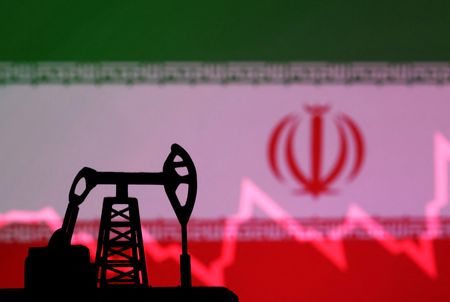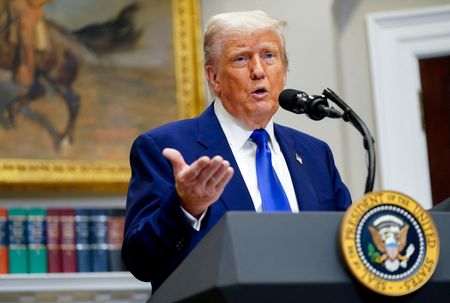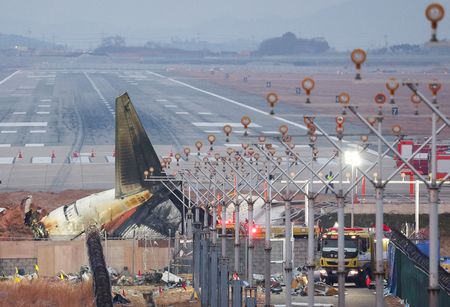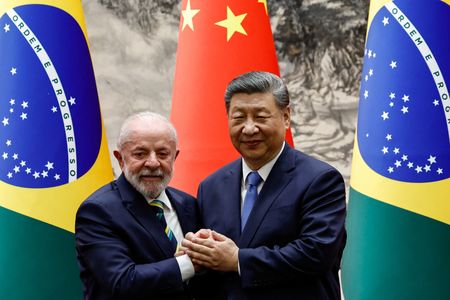By Timothy Gardner
WASHINGTON (Reuters) – The U.S. Treasury Department on Tuesday imposed sanctions on more than 20 companies in a network that it said has long sent Iranian oil to China, days after negotiators from Iran and the United States concluded a fourth round of nuclear talks.
The network facilitated the shipment of oil worth billions of dollars to China on behalf of Iran’s Armed Forces General Staff and its front company, Sepehr Energy, Treasury said. Washington designated Sepehr in 2023.
The U.S. sanctioned companies including CCIC Singapore PTE, which it said helped Sepehr by concealing the oil’s Iranian origins and carried out pre-delivery inspections required before oil was transferred to China. It also sanctioned Huangdao Inspection and Certification Co Ltd for having assisted Sepehr with oil cargo inspection services to vessels that had already been sanctioned.
Treasury also sanctioned Qingdao Linkrich International Shipping Agency Co Ltd, which it said has assisted Sepehr Energy-chartered vessels with arrivals and discharges at Qingdao Port as its designated port agent.
The Chinese embassy in Washington and the Iranian mission in New York did not immediately respond to requests for comment.
The sale of the oil helped fund the development of Iranian ballistic missiles and drones, nuclear proliferation, and attacks by the Houthi militant group on shipping in the Red Sea, the U.S. Navy and Israel, said the administration of President Donald Trump.
“The United States will continue targeting this primary source of revenue, so long as the regime continues its support for terrorism and proliferation of deadly weapons,” Treasury Secretary Scott Bessent said in a release.
Tuesday’s sanctions were the latest since Trump reinstated his “maximum pressure” campaign on Iran after his second term began in January. His second administration had previously imposed sanctions on China’s independent “teapot” oil refineries for processing Iranian oil.
The sanctions block U.S. assets of those designated and prevent Americans from doing business with them. The measures have boosted pressure on Iran and China, but analysts have said that in order to have broader impact on the oil exports, Washington would have to impose sanctions on China’s state-owned enterprises.
Tehran and Washington have both said they prefer diplomacy to resolve the decades-long nuclear dispute, but they remain deeply divided on several red lines including enrichment of uranium in Iran.
(Reporting by Timothy Gardner and Susan Heavey in Washington; Editing by Nick Zieminski and Matthew Lewis)










